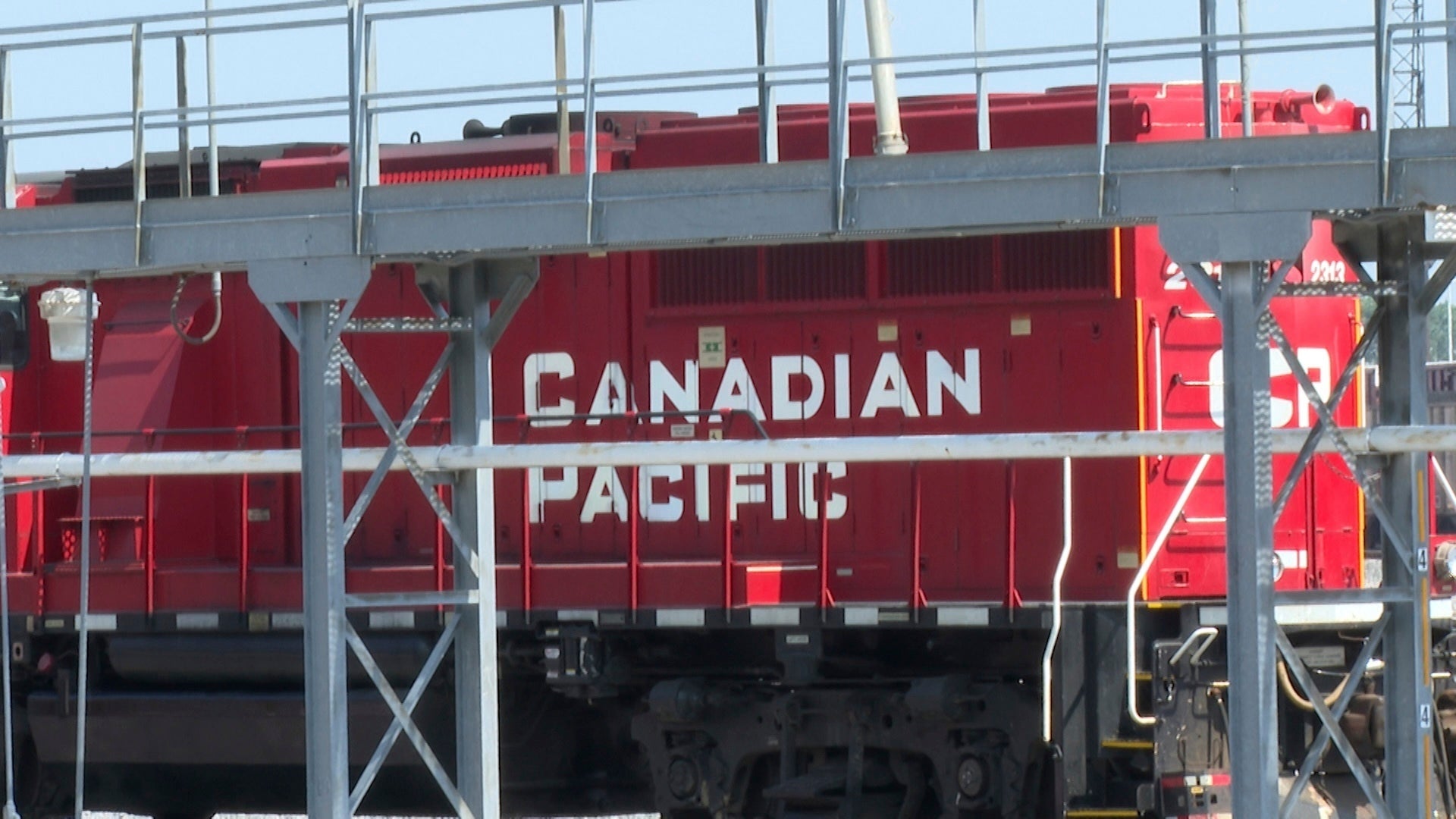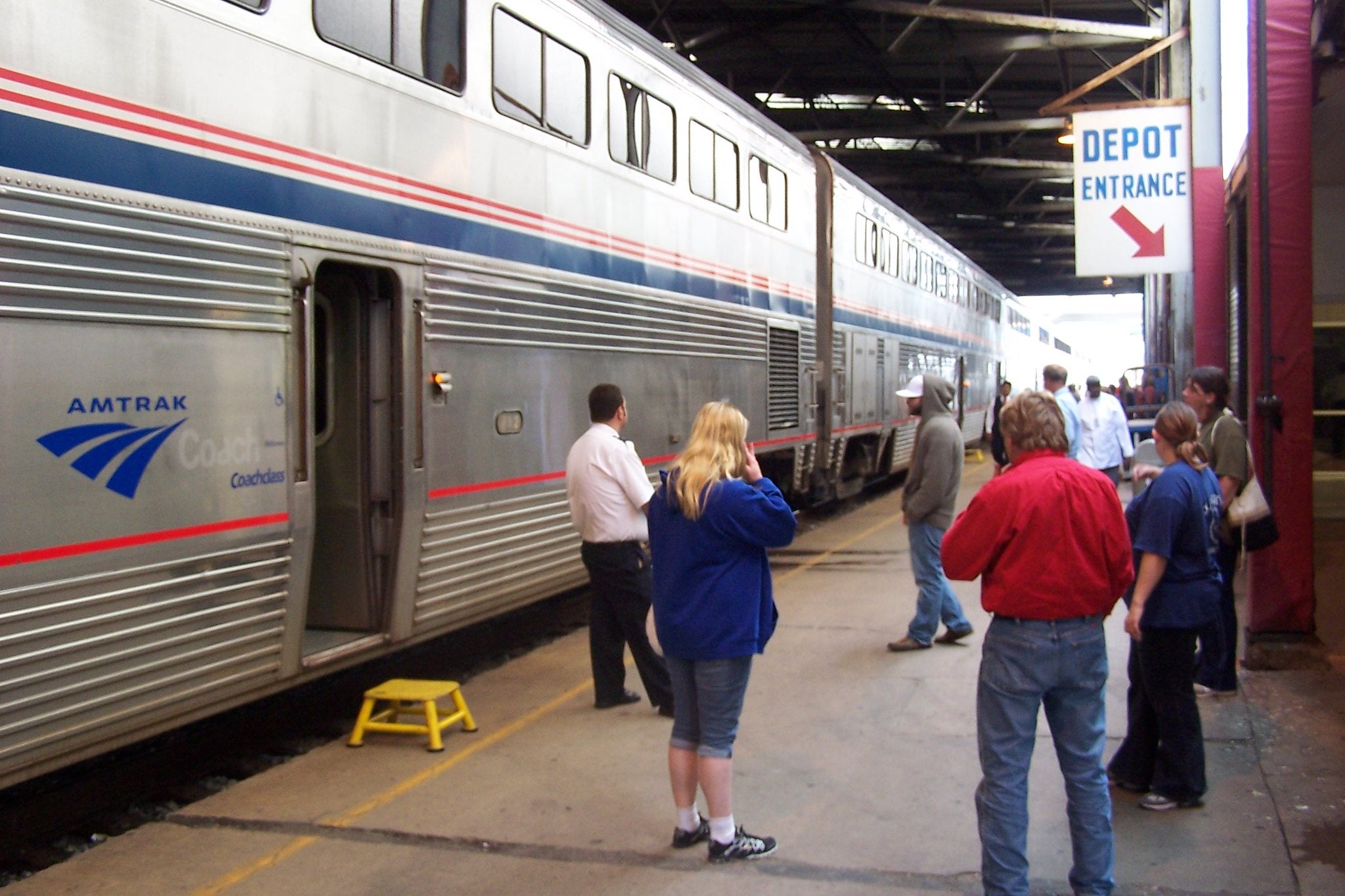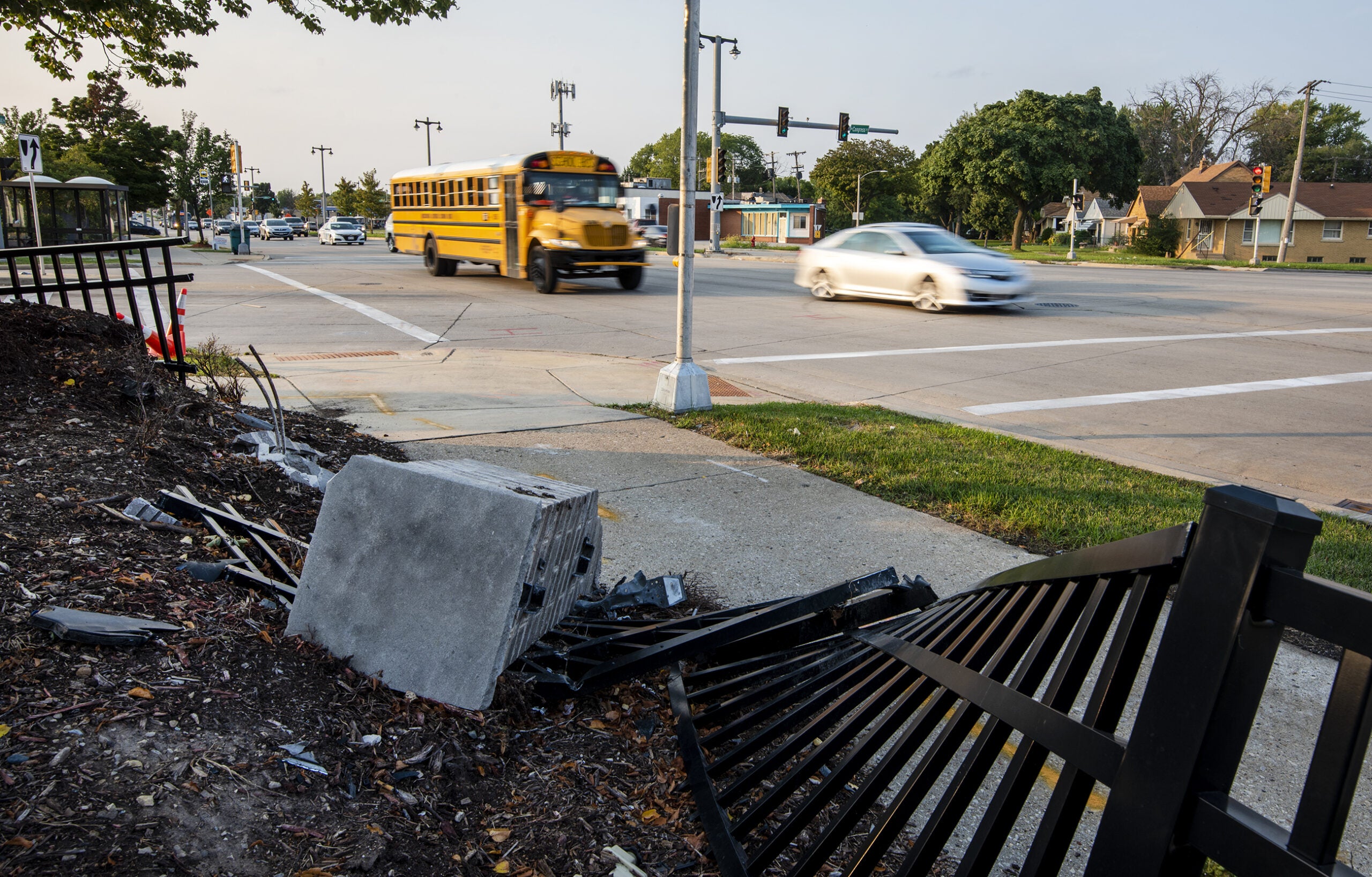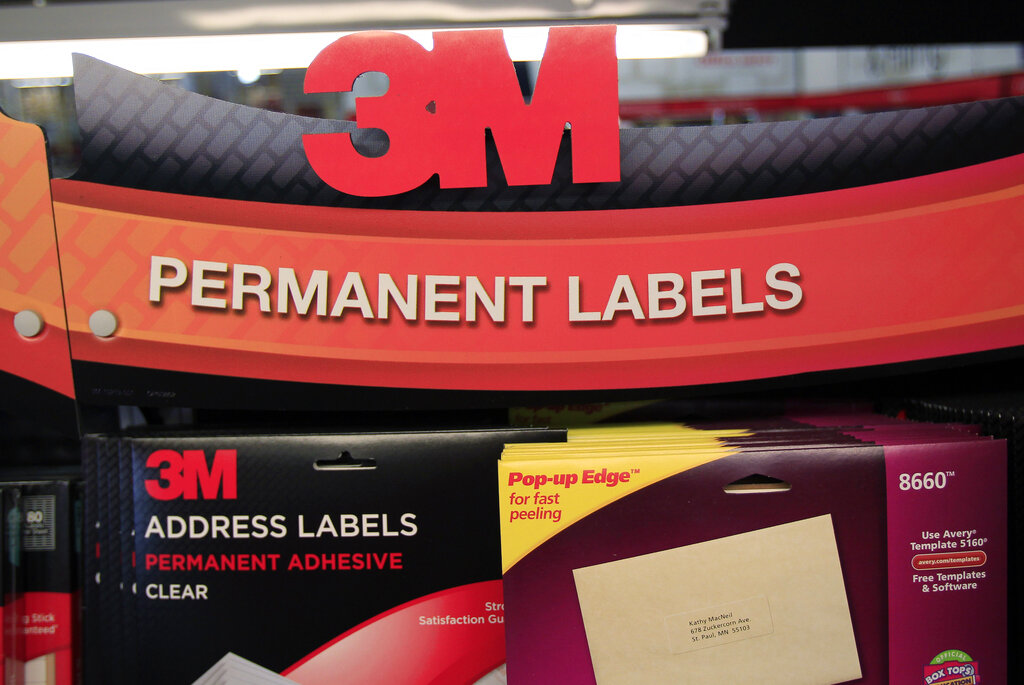Some $3 million in federal money will be used to improve safety at 10 railroad crossings in Waukesha County.
Federal Railroad Administrator Sarah Feinberg and Wisconsin U.S. Sen. Tammy Baldwin announced the grant on Saturday during a news conference at Pewaukee Village Hall. Baldwin had been advocating in favor of the grant.
The money is part of $10 million given out in eight states to upgrade rail crossings along routes where freight trains carry crude oil and other energy supplies. The federal program is called the Safe Transportation of Energy Products, or STEP.
News with a little more humanity
WPR’s “Wisconsin Today” newsletter keeps you connected to the state you love without feeling overwhelmed. No paywall. No agenda. No corporate filter.

FRA Administrator Sarah Feinberg, left, and Sen. Tammy Baldwin, right, speak with a Pewaukee police officer near a rail crossing set for improvements from a federal grant. Chuck Quirmbach
The rail corridor in Waukesha County carries an average of 23 trains per day. Several freights haul crude oil from North Dakota on their way to refineries elsewhere in the Midwest, or on the east coast.
Since 2005, there have been four collisions at crossings along the corridor, according to the Federal Railroad Administration, resulting in two fatalities and one injury. On the same rail route in Jefferson County last fall, an oil train derailed. A day earlier, a train carrying ethanol had derailed near Alma in western Wisconsin. Spills occurred at both sites.
The FRA’s Feinberg suggested the money for Waukesha County was not a subsidy for the railroad industry, since the grant is for crossing improvements.
“I personally believe that railroads should be paying for the track improvements themselves because they own the track, and that grant money should be going to communities like this that are worried about grade crossing safety, and pedestrians and vehicles that are crossing,” she said.
The improvements in Waukesha County will include additional lights and gates, as well as resurfacing the road over the tracks.
The FRA acknowledged the grant money comes as oil train shipments are down, due to decreased oil prices. But Feinberg said she expects those prices to come back up.
“Traffic’s down for now, but this is not the end of transporting crude by rail,” she said.
Feinberg said that’s because it’s a very “flexible” mode of transportation.
Wisconsin Public Radio, © Copyright 2026, Board of Regents of the University of Wisconsin System and Wisconsin Educational Communications Board.




